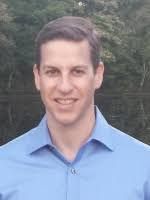Funding Summary
Dr. Koren studies how DNA is copied (replicates) as cells grow and divide. He previously discovered that the PWS region of chromosome 15 is unique in that the timing of DNA replication on the father’s chromosome is very different than the replication of DNA on the maternal chromosome 15. He hypothesizes that loss of the PWS genes on the father’s chromosome 15 alters DNA replication across all of the DNA in the cell, disrupting how cells grow and develop. In this funded project, they will measure DNA replication, cell division, and development of neurons in cells from healthy subjects as well as PWS patients, to understand if changes in DNA replication leads to alterations in development that result in the symptoms of PWS.
This project was funded by FPWR-Canada.
Watch the full webinar describing all 9 research projects funded in this grant cycle here.
Lay Abstract
Prader-Willi Syndrome is a genetic disease, yet despite intensive research the precise gene or genes responsible for this disorder remain unknown. Different patients present with different genetic defects yet with a similar disease, presenting a conundrum that is impeding progress in Prader-Willi Syndrome research and drug development. Without complete understanding of the genetic basis of the disease, it will remain very difficult to understand its biology and to develop new therapies. Following-up on discoveries from two decades ago and using state-of-the-art technologies in human genomics and human stem cells, we propose a new explanation for the genetic basis of Prader-Willi Syndrome. We propose that various genetic alterations in different patients converge to influence how the DNA – the genetic material – is copied in patient cells. DNA is copied (or replicated) every time a cell divides, and failure to properly complete this process ultimately results in tissues with a lower number of cells. Brains from Prader-Willi patients have been shown to contain significantly fewer cells of specific types, likely explaining their neurological symptoms. We have discovered a unique pattern of DNA replication relevant to Prader-Willi syndrome, a pattern that has been eluded to many years ago but that has remained unclear since. Specifically, we found that the paternal copy of the DNA in cells – the same copy that is missing in Prader-Willi patients – is responsible for copying a large part of the cell’s DNA; genetic alterations in Prader-Willi patients would thus result in defective DNA replication that could lead to diminished cell divisions and disease. In this proposal, we will test this hypothesis by measuring DNA replication in several cell types from both healthy subjects and Prader-Willi patients, using advanced and unique technologies that our labs have developed. We will also measure cell division and development of brain cells, enabling us to link DNA replication to Prader-Willi pathologies. Our research will advance (and potentially transform) the genetic understanding of Prader-Willi Syndrome, a prerequisite for fundamental advances in disease therapy.
Research Outcomes: Public Summary
Previous studies have suggested that the maternal and paternal copies of the Prader-Willi genetic locus replicate at different times during the S phase of the cell cycle. However, the significance of this asynchronous DNA replication has remained unknown. In this project, we first confirmed that the paternal allele of the PWS locus indeed replicates significantly earlier than the maternal allele in human embryonic stem cells. We established the robustness of this asynchronous replication in multiple cell lines and showed that it does not result from genetic variation. We further showed that asynchronous replication is maintained after differentiation of cells to neuronal progenitors, and that patients with deletions of the paternal allele at the PWS locus lose the early replication of the entire locus. This project established a human stem-cell based system to study DNA replication timing in the Prader-Willi locus and characterized the allele-specific replication timing of the locus. Further studies will explore the functional significance of asynchronous replication at the PWS locus. DNA replication timing may play a central part in the genetics and etiology of Prader-Willi syndrome.
Funded Year:
2019
Awarded to:
Amnon Koren, Ph.D.
Amount:
$54,000
Institution:
Cornell University
Researcher:

Amnon Koren, Ph.D.




